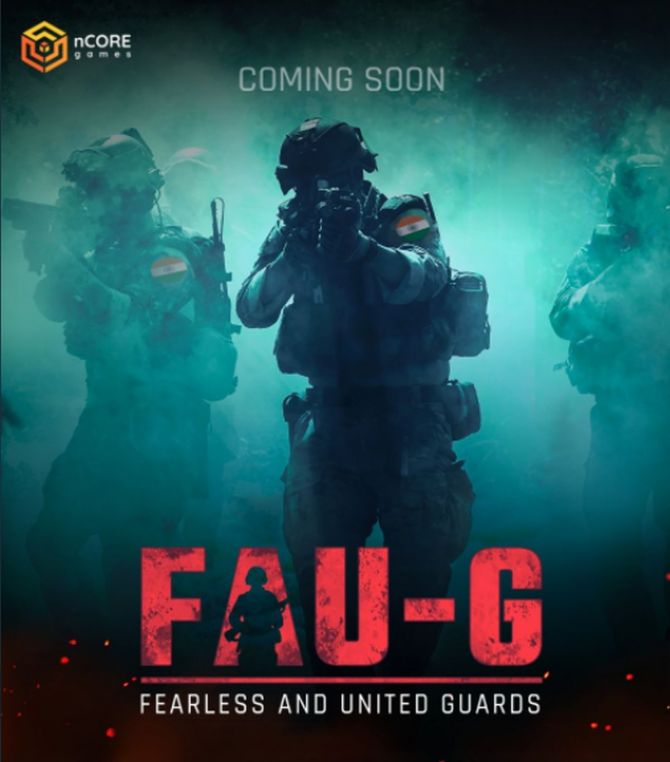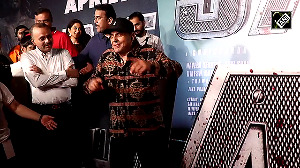According to nCore Games, FAU-G will be based on real scenarios encountered by the Indian security forces to deal with both domestic and foreign threats, with its first level set against the Galwan Valley backdrop.
The start-up is planning to monetise the venture through in-game purchase where people will be able to buy better items in the game like better armour for an enhanced gaming experience.

Barely 24 hours after Chinese gaming app PUBG along with many others was banned, serial entrepreneur Vishal Gondal has announced a desi alternative of the game called FAU-G.
Vishal Gondal, who is advisor and investor in nCore Games, says the company was already building the product for the past six months and will be rolling it out by October.
“Games take time to build. You cannot make a game in 2-3 days. And we were definitely going to launch irrespective of the PUBG ban,” he says.
Gondal, who has been developing games since the age of 14, previously also founded a game development and publishing company Indiagames which was successfully sold to Walt Disney in 2013 for around $100 million. He is also the founder of preventive healthcare platform GOQii.
According to the company, FAU-G will be based on real scenarios encountered by the Indian security forces to deal with both domestic and foreign threats, with its first level set against the Galwan Valley backdrop.
The start-up is planning to monetise the venture through in-game purchase where people will be able to buy better items in the game like better armour for an enhanced gaming experience.
It says it will be donating 20 per cent of the net revenue generated from the game to Bharat Ke Veer Trust, which is conceptualised by actor Akshay Kumar and implemented by the ministry of home affairs, to support the families of India’s armed forces martyrs.
It is estimated that PUBG earned a revenue of up to Rs 750 crore annually from India alone. The Bengaluru-based start-up is aiming for a similar revenue in the next one year.
Currently valued at $885 million, the Indian gaming industry is expected to grow at 41.6 per cent (FY20-21) due to the growth of digital infrastructure and rise in quality and engaging gaming content, according to a report by Maple Capital Advisors.
Several gaming developers are going to capitalise on the increasing number of smartphones users, ease of use and strong penetration coupled with the ban on Chinese apps in India.
Game streaming platforms were already anticipating the ban of PUBG to happen in the near future and hence were already focusing on other alternatives.
“Rooter had less than 10 per cent PUBG streamers and it was a conscious effort on our part to ensure that we focus more on other games like Free Fire and Call of Duty. Both the games have strong engagement on Rooter and most of their top streamers are part of our user base,” says Piyush Kumar, CEO & Founder of the game streaming platform.
Call of Duty (COD), which originated in the US in 2003, is the most talked about PUBG alternative currently in the country.
“Post the PUBG ban, users are significantly shifting towards COD. Currently, we have started to experience close to a 30 per cent shift on COD from PUBG. For the rest of the users, they are going up for Free Fire Fortnite while others are looking at switching towards PC games such as Valorant,” says Yash Pariani, CEO, Indian Gaming League.
nCore will be next rolling out two more games in a couple of months with one on the music theme and other on cricket.
“We will be creating a world class gaming experience which will be better than PUBG as our team has already worked on some of the best game titles in the world such as Vainglory,” says Gondal who is a college dropout and learnt on the job to develop games.
However, only time will tell if the app is able to gain the traction that PUBG has seen in India.
“It’s not easy to make high-quality graphics and experience at that level. I will only download the game after seeing reviews,” says Sahil Verma, a textile designer based out of Delhi, who had been playing PUBG for two hours everyday for the past two years.
Gondal had released his first game on the Kargil war backdrop called Yodha in 2000, through his debut venture India Games, which was later sold to Disney for $100 million in 2012. As part of the deal Gondal had signed a non-compete clause with Disney which made him stay away from any kind of gaming venture for five years.
So in 2013, he founded Goqii which is a wearable tech startup that develops and sells smart wearables.
“Gaming has always been my first love and Goqii is also all about gamifying health,” says Gondal who spends at least one hour playing online games everyday.
He came on board nCore games in 2019 by investing an undisclosed amount in the start-up, that was founded by Dayanidhi MG to develop and publish games in the domestic market.












 © 2025
© 2025